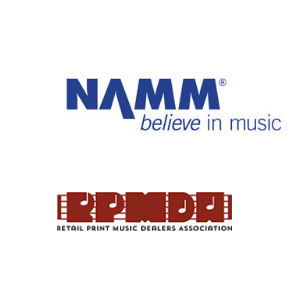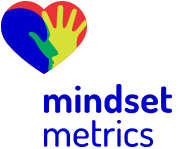Yes, you’re different!
“But Dr. Russ, MY industry is different!”
and…
“But Dr. Russ, MY company is different!”
They are correct! (Despite articles to the contrary.)
What we’ve learned from some wonderful clients and industries.
Some consultants and coaches say that ‘Sales is sales, regardless of the company or industry.’ Or, ‘Customer service is the same, regardless of the company or industry.’ While that opinion is somewhat common and prevalent, we’ve found different results. It is true that certain aspects of the role of selling transfer across all industry domains. However, when we explore some Mindset nuances we find that sales IS different between different industries, and sometimes between companies within the same industry. The differences may be subtle, but they are important to the culture of the company or industry, and become an important part of the discussion when someone talks about ‘job role fit’ for themselves. The same can be said of customer service professionals and other job roles. You may have similar observations. In the vignette sections below, we offer very brief stories of what we have learned from our colleagues in a variety of industries and professions. (Listed in alphabetical order by category.)
What these stories have in common is that they included research on populations of professionals (across many industries) who were focused, engaged, successful, and aligned enough with their companies and careers to be attending national conferences. They were upbeat, connected, and ready to be active problem-solvers within their greater industries. They felt a good ‘fit’ between their individual Mindsets and the companies they represented. Informal conversations with some showed that they had worked in the industry for a number of years and had perhaps made a job change across companies until they experienced a good ‘fit’ in their current company.
‘Fit’ is a word that is commonly heard when asking about their own feelings of success within a company. We were using long-form self assessments at the time, and we’ve learned that the Mindset Metrics survey (two minutes response time) matches the primary scores of the long-form assessments at a rate of about 96%. While perhaps not granular enough to use for pre-hire screening and selection, the purpose of Mindset Metrics is to help retain all employees and to increase the level of engagement, teamwork, focus, and effectiveness. In brief, to positively impact the corporate culture of each company in measurable ways.
But Dr. Russ, the Feed Industry is different!” (YES, it is!)
A Spirit of ‘Helping’ in sales and marketing in the Feed Industry

In conducting industry-wide research across several years at sales and marketing conferences for the AFIA (Am. Feed Industry Assn.), we harvested Mindset Metrics scores from hundreds of sales and marketing professionals. As some people have said that all salespeople are alike in personality and motivation, we discovered very early that the generalization doesn’t hold. Much of the sales role on the street is a competitive activity. Some industries are intensely competitive and others are slightly less competitive. In the feed industry there is strong competition between companies, and also a high degree of respect shown between the companies.
This is also demonstrated in the Mindset Metrics we observed among the population of sales professionals. When reviewing the aggregate scores of all salespeople across all industries, and comparing to a segment of Feed-only salespeople we find some subtle and important differences. While much of the competitive sales initiative involves persuasion, influence, and leading the prospect through the sales cycle or process. Feed sales professionals do all of that, but also with a slightly higher knowledge motivation (i.e., they do their homework on their prospects), a higher altruistic motivation (i.e., they approach sales with a higher ‘sincerity-factor’), and a slightly lower power/control motivation (i.e., they’re not trying to assert so much power as to slam-dunk a sales contract). Rapport and loyalty are important. Many suppliers have decades-long relationships with their rancher and producer customers.
We observed a greater trend to emerge as we explored this in more detail. Feed industry sales professionals sell into a marketplace (namely ranchers and producers) who have maintained loyalty, integrity, and stability in their careers and livestock operations for decades, and for some, generations. Ranchers and producers tend to be loyal to their current suppliers, and don’t make changes to new suppliers easily. If a supplier can maintain quality, service, integrity, and loyalty to the ranchers and producers, they typically have a customer for a long time. These are some of the motivators and values expressed by the sales professionals in the Feed industry. In making an initial generalization, we learned that this statement can be fortified and strengthened: “Motivators and behaviors of winning sales teams in niche marketplaces tend to emulate the motivators and behaviors of their customers.” We’ve observed this in agricultural industry sales, specialty chemical sales, green energy, information technology and other industries. The differences are subtle, but also indicative of a rapport-fit across these niche marketplaces.
Okay, so what does this mean for you?
It means that IF the participants in a national conference in the feed industry are leaders in their companies, and IF they really like their job roles, then there is a feeling of good ‘job role fit’ and ultimately a feeling of success and confidence. It’s a matter of Mindset! This even in the midst of a competitive marketplace and changing conditions. As you think about a job role that you really, really liked – you felt engaged, appreciated, effective, and rewarded. It’s my guess that if this is true, then the Heart, Head, and Hands of your own Mindset fit like a glove into the workplace culture. It’s also my hope that you find that fit in the future with other job roles as your career progresses. More information on this notion in other sources on this website.
“But Dr. Russ, the Air Filtration and HVACR Industry is different!” (YES, it is!)
Aesthetics and Environmental awareness in Air Filtration Industry

We participated in conferences for the National Air Filtration Assn. (NAFA), and explored the behaviors and motivators of the attendees and association leaders. The results reinforced the mission and purpose of the organization and of their member companies. The attendees were engaged in learning the best practices across a variety of themes: Airborne infections containment, higher education complexes, public buildings, schools, molecular filtration, and other topics of high interest to the filtration industry.
While these topics may not be conversational subjects for many people, they are nevertheless issues that keep all of us safe as a population. We also learned from our participation in conferences with the Heating Air Conditioning Retail Distributors Int’l. (HARDI). The distributors were engaged in issues related to safety (driver safety) as distributors, growing the workforce and promoting interest in trades, and exploring new apprenticeship programs. Again, topics of high interest to the attendees with eager sharing of new information adding to their best practices. Combined, both groups showed a strong business sense, a drive for maintaining safe control, and a strong knowledge-base in their Mindset Motivators.
Through the behaviors lens we observed a strong set of both a people-orientation and a desire for high quality control.
Change industries and we change topics of interest. No surprise there. In each industry there is a broad element of ‘commonality.’ This can include interests, attitudes, values, motivations, behaviors, work environments and a spectrum of other traits which merge into an industry Mindset. Those who engage and participate are of similar Mindset on many issues. Similar but not identical Mindsets. There is always a healthy diversity of thought and ideas.
Okay, so what does this mean for you?
It means that IF the participants in a national conference in the air filtration or distribution industries are leaders in their companies, and IF they really like their job roles, then there is a feeling of good ‘job role fit’ and ultimately a feeling of success and confidence. It’s a matter of Mindset! This even in the midst of a competitive marketplace and changing conditions. As you think about a job role that you really, really liked – you felt engaged, appreciated, effective, and rewarded. It’s my guess that if this is true, then the Heart, Head, and Hands of your own Mindset fit like a glove into the workplace culture. It’s also my hope that you find that fit in the future with other job roles as your career progresses. More information on this notion in other sources on this website.
“But Dr. Russ, the Chemical Distribution Industry is different!” (YES, it is!)
Quality control in Chemical Distribution

We presented our research on the ‘Emerging Leaders’ project with the National Association of Chemical Distributors (NACD), and shared the results while listening to ideas of the participants. NACD member companies process, blend, transport, and market chemical products for their customers. The organization promotes the professionalism and stewardship of chemical distribution. In brief, they are concerned with safety in transportation and quality control with chemicals and blends. Their Emerging Leaders are young professionals from member companies who have shown leadership, talent, problem-solving, and a passion for advancing their companies and roles in the industry. It was a demographically diverse group of professionals who had some traits in common. (Those traits were quantified by our longer-form DISC and Motivators assessments.)
The traits included a strong business sense (economic drive), an equally strong uniqueness and influence drive, along with a higher-than-average altruistic drive showing concern for others. This specific mix of traits amplified the overall mission and vision of the overall association.
These Emerging Leaders discussed feeling a good ‘fit’ in their home companies and within the greater industry. They were engaged, focused, and eager to make an impact with their careers. They were business professionals, somewhat early in their careers, and expressed an internal energy and enthusiasm for their job roles. Certainly, they were a special sample of the industry because they were selected by their companies. This was good because it allowed us to in-part quantify the aggregate traits of young leaders who really, really liked their job roles, and were optimistic about their careers.
Okay, so what does this mean for you?
As we listened to these emerging leaders and shared our results of the self-assessments, we learned again that the focused, energetic tempo of the group, and the affinity that each member held for their job role was in large part, a matter of Mindset! As you think about a job role that you really, really liked – you felt engaged, appreciated, effective, and rewarded. It’s my guess that if this is true, then the Heart, Head, and Hands of your own Mindset fit like a glove into the workplace culture. It’s also my hope that you find that fit in the future with other job roles as your career progresses. More information on this notion in other sources on this website.
“But Dr. Russ, the Information Technology Industry is different!” (YES, it is!)
Information Technology a wide diversity of Mindset: All of it needed.
(Data Center Systems, Enterprise, Devices, Services, and Communication)

Our work in the Information Technology arena began in the mid-1970s and beyond with participation in a series of research projects with Culpepper Associates Forums, with many independent software companies, and later the ITA (Illinois Technology Assn.). Our research continued into pre-hire screening and exploring the traits of top performers in both sales and technical support in the software industry. Again, many substantial differences occurred which provided illumination and guidance to many software companies. We were able to provide specifics on how to attract and retain top performers, and coaching on how to assist mid-range performers to move closer to the top performers. We also gave specific tools for the lower performers to increase skills and move into the mid-range. In brief, we were able to help move all performers toward the right (upper) side of the normal curve, in both sales and technical support.
We learned much through the research projects, and continue to learn with new activity. In brief bullets, here are some of the areas where we quantified some enlightening information:
- Some salespeople are average performers with a specific product mix within a software company, and become excellent performers when given a different product mix. (It may be a matter of Mindset ‘fit.’)
- Software development and technical support teams sometimes don’t get along well with the software sales teams. When they learn of the Mindsets of each of the teams, and why that Mindset is necessary and important to the success of the company, each team has a new respect and appreciation for the other teams. It is clearly a matter of Mindset fit. Software developers would have great difficulty selling their software on the competitive street. Even more dramatic difficulty would be depending on the sales team to write program code! They need each other to be fully engaged in the roles of their own expertise.
- Success software companies selling into niche marketplaces have sales teams that have Mindsets similar to the Mindsets of their prospects in niche marketplaces. We’ve observed this in software companies selling into specific niches like: Education, manufacturing, green energy, automotive, and other niches. These observations were made after-the-fact using various long-form assessments, which have now been reduced to the brief two-minute Mindset Metrics survey.
Okay, so what does this mean for you?
It means that IF software sales teams, or technical teams really like their job roles, then there is a feeling of good ‘job role fit’ and ultimately a feeling of success and confidence. It’s a matter of Mindset! This even in the midst of a competitive marketplace and changing conditions. As you think about a job role that you really, really liked – you felt engaged, appreciated, effective, and rewarded. It’s my guess that if this is true, then the Heart, Head, and Hands of your own Mindset fit like a glove into the workplace culture. It’s also my hope that you find that fit in the future with other job roles as your career progresses. More information on this notion in other sources on this website.
“But Dr. Russ, the Insurance Industry is different!” (YES, it is!)
Insurance profession and ‘culture-fit plus’
You may have a friend in insurance or another industry similar to my friend, Matt, who has been a sales professional in the insurance industry for twenty-five years. He’s sold insurance for three different, well-known insurance companies. When he landed in his current company where he’s stayed for the majority of his career, he mentioned to me that he feels a good ‘fit’ with the current company culture. He said that the ‘fit’ dealt with his own motivation, the teamwork with colleagues, and a positive and pro-active leadership team. Even though the insurance products he was selling were only about five percent different from the other companies, it wasn’t about the insurance product differences but rather the overall company and office culture, which he labeled ‘fit.’ He felt motivated, engaged, focused, and successful in his career with his current company, and had no plans to leave.
In working on prior Mindset Metrics projects with several large insurance companies we observe slight differences between company culture charts (we call them Culture MRIs). While the differences are subtle, they may in part explain the feeling of a good ‘fit’ for professionals in sales or customer service in the companies. You may have similar experiences of your own.
The next few years will bring increasing change and innovation to the insurance industry. This includes the increasing use of data analytics, property inspection drones, chat-bots, attaching satellite sensors / monitors to vehicles, and other innovations.
The corporate Mindset culture of each company will respond in slightly different ways to these and other innovations. Knowing the individual and aggregate corporate Mindset of the organization can help in embracing change and meeting the future as it arrives, rather than chasing it from behind. Mindset Metrics aren’t typically used for pre-hire assessment and screening, but rather as an instrument of motivation and engagement for all employees. The model is compatible with all existing four-dimensional behavioral models, and all motivation / values models. It’s not an ‘assessment,’ but rather a brief two-minute survey that provides the end result of ‘Motivation as a Service,’ including the brief reports, certificates, and the 3x/week Brainergy messages unique to each person’s pattern of responses.
Okay, so what does this mean for you?
It’s a matter of Mindset! This even in the midst of a competitive insurance marketplace and changing conditions. As you think about a job role that you really, really liked – you felt engaged, appreciated, effective, and rewarded. It’s my guess that if this is true, then the Heart, Head, and Hands of your own Mindset fit like a glove into the workplace culture. It’s also my hope that you find that fit in the future with other job roles as your career progresses. More information on this notion in other sources on this website.
“But Dr. Russ, the Retail Music Industry is different!” (YES, it is!)
Music Merchants teach us that Music is a universal language

Having spoken to hundreds of music store owners and thousands of sales and service professionals in the retail music industry via NAMM (National Assn. of Music Merchants) events across two decades, we always learn from them that music is indeed a universal language. We’ve also presented to a tangent organization RPMDA (Retail Print Music Dealer Assn.) And, when we apply the Mindset Metrics model to the choices people make regarding music, we learn some quantifiable trends. The Mindset design is composed of three lenses: Heart (Motivators), Head (Behaviors), and Hands (Ideal Work/Social Environment).
Motivators carry across a spectrum from a group of ‘Tradition’ motivators at one end, to ‘Innovation’ motivators at the other end. Neither end of the spectrum is wrong, they are simply different approaches to how one is motivated. Those who load more toward the Tradition motivators and Stability behaviors may enjoy more classical music selections, and appreciate the structure, form, and complexity of the classicists. Others on the Innovation motivators and Change-oriented behaviors side of the spectrum may be attracted to forms of music like jazz and forms that encourage improvisation in the art-form. Sometimes, opposites attract and people enjoy music quite different from their day-to-day operations.
Similar observations occur when exploring the ideal work / social environment preferred; a Systematic environment versus a Creative environment. Those preferring a Creative environment with new solutions, people, variety, and flexibility tend to choose working in the ‘front of the house,’ namely in sales and demonstration positions. Those who prefer a more Systematic environment with proven methods, facts, predictability, and structure tend to choose working in the ‘back of the house,’ in service and repair functions at the music store or company.
Okay, so what does this mean for you?
It means that IF the participants in a national conference in the music retail industry are leaders in their companies, and IF they really like their job roles, then there is a feeling of good ‘job role fit’ and ultimately a feeling of success and confidence. It’s a matter of Mindset! This even in the midst of a competitive marketplace and changing conditions. As you think about a job role that you really, really liked – you felt engaged, appreciated, effective, and rewarded. It’s my guess that if this is true, then the Heart, Head, and Hands of your own Mindset fit like a glove into the workplace culture. It’s also my hope that you find that fit in the future with other job roles as your career progresses. More information on this notion in other sources on this website.
“But Dr. Russ, the Seniors Housing Industry is different!” (YES, it is!)
(A brief summary of continual research since 2010)
Move-ins versus Cold leads in rental Independent Living
Since 2010 we have done research in two important areas within the seniors housing industry. One area of research explored the Mindset of those people who choose to move into a rental Independent Living property versus those people who remain cold leads. We chose rental Independent Living because that is an ‘elective’ sale rather than an urgent sale like Assisted Living or Memory Care. One of the bottom-line differences between those who choose to move-in versus those who choose to remain at home is all about Mindset. We controlled for as many other factors as possible, including financial ability to pay, family support and availability, and other external factors. The remaining variables illuminated their Mindsets.
Those who remained cold leads and stayed at home had several Mindset Motivators in common:
- They want to maintain their ‘uniqueness’ in the current at home situation. Perhaps they are ‘block leaders’ or neighborhood leaders, perhaps they are members of a subdivision board or committee. They aren’t ready to leave that vector of influence.
- They are accepting of letting some maintenance items slip on their property; that is, ‘let’s make do with it as it is.’
- They want to maintain their independence at home (even though the independence will remain in a rental independent living property; they can still go out and about; shopping, trips, etc.).
- They want to protect their finances, even though a change to a rental independent living situation will not be much more expensive than staying at home; in some cases it’s even less expensive. The cold leads’ Behavioral Mindset converged on these traits:
- They are more cautious and suspicious.
- They are very slow to make decisions.
- They want to protect their status quo.
Those to choose to move in to a rental Independent Living property show a Mindset of observable traits. On the Mindset Motivators view:
- They show a ‘giving’ and helping attitude toward others, and engage easily in a seniors’ community through volunteer projects and activities.
- They have a desire to ‘serve,’ whether serving others in projects, or serving their family and adult children by making the move and giving the family additional peace-of-mind.
- They show a desire to ‘belong’ to a group of age-peers.
- They are willing to give up some of their self-reliance (especially in up-keep of their current home), and their uniqueness (they don’t have a need to remain ‘block captain’ of their neighborhood.) On the Mindset Behaviors side, the move-ins show these observable traits:
- They are more outgoing, people-oriented, and talkative than the cold leads.
- They are good listeners, and are good coach / counselor types toward others.
- They are open to new experiences and alternatives. Combined, these Mindset Motivators and Behaviors create an aggregate of traits for the move-ins that help them decide on making the move, and also provide for a more seamless transition into the seniors community.
Why is learning these Mindset differences important?
Because it can assist in streamlining the sales cycle for seniors housing properties, and allow the sales teams to focus on those who are ready to make the move. It also allows the sales team to keep in touch with the cold leads, because sometimes, ‘No,’ might really mean, ‘Not now.’ As you think about a job role that you really, really liked – you felt engaged, appreciated, effective, and rewarded. It’s my guess that if this is true, then the Heart, Head, and Hands of your own Mindset fit like a glove into the workplace culture. It’s also my hope that you find that fit in the future with other job roles as your career progresses. More information on this notion in other sources on this website.
“But Dr. Russ, Seniors Housing sales is different!” (YES, it is!)
(A brief summary of continual research since 2010)
The Mindset of Top-performing Seniors Housing Sales Professionals
Some business commentators say that all sales is sales regardless of the industry; and marketing is marketing regardless of industry. While there are some similarities in the specific activities within a sales role, or marketing, or service, once the fundamentals are accepted, the differences between industries begin, in our opinion. We observe some uniqueness within the top performing sales professionals in the Senior Housing industry. There are two Mindset Metrics themes that the top performers share. One of the themes is the Mindset Motivators where we observe an aggregate set of Helping, Economic, and Knowledge-drive to be very close in their score rankings.
What this means is that they:
- Are knowledgeable and do their homework.
- They hear the ‘revenue clock’ ticking over their shoulders.
- They are helpful coaches to their prospects but also retain a business awareness and a realization that they are not full-time social workers. The second theme, the Mindset Behaviors showed aggregate similarities in the top performers that include:
- They are slightly more decisive and think quickly on their feet.
- They bring a slightly higher sense of urgency to the sales process.
- They are flexible problem-solvers and outside-the-box thinkers.
Those rated as lower performers didn’t show the traits mentioned above related to the top performers, but sales managers have training opportunities that can include some skill-building and direct coaching. The skill building can include:
- Increasing training on handling objections.
- Training on additional options to provide prospects.
- Increased tools for more flexible problem-solving.
- Explore ways to politely increase urgency (slightly) within the sales cycle. The direct coaching can be objective: Remind them that they are not full-time social workers; they need to reach their own appropriate balance between showing empathy and being a sales professional for your property.
What does this mean for you as a professional in Seniors Housing?
Mindset Metrics has developed a first-of-its-kind system to deliver person-specific messages M-W-F throughout the year. The Brainergy messages are able to keep all sales performers and other professional (non-sales) staff engaged and focused. The Brainergy ‘Micro-Motivators’ also provide some of the coaching to maintain and increase personal effectiveness on their individual pathways to success. As you think about a job role that you really, really liked – you felt engaged, appreciated, effective, and rewarded. It’s my guess that if this is true, then the Heart, Head, and Hands of your own Mindset fit like a glove into the workplace culture. It’s also my hope that you find that fit in the future with other job roles as your career progresses. More information on this notion in other sources on this website.
Disclaimer:
The logos of companies and industry associations are intended to do honor and recognition to those associations for participating in a variety of research projects across several decades. The logos displayed do not indicate a testimonial or endorsement from any association, unless otherwise posted elsewhere on this website.

